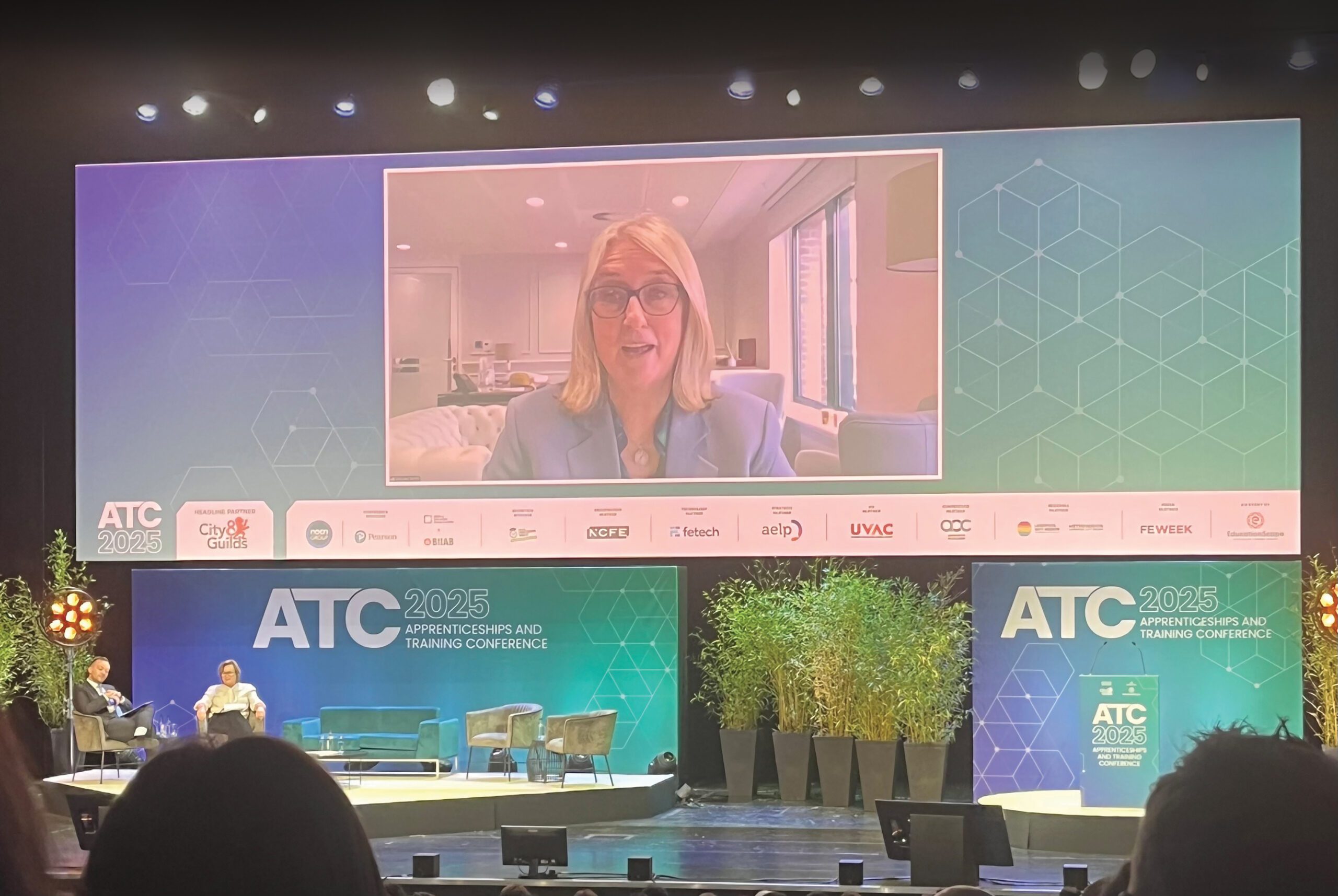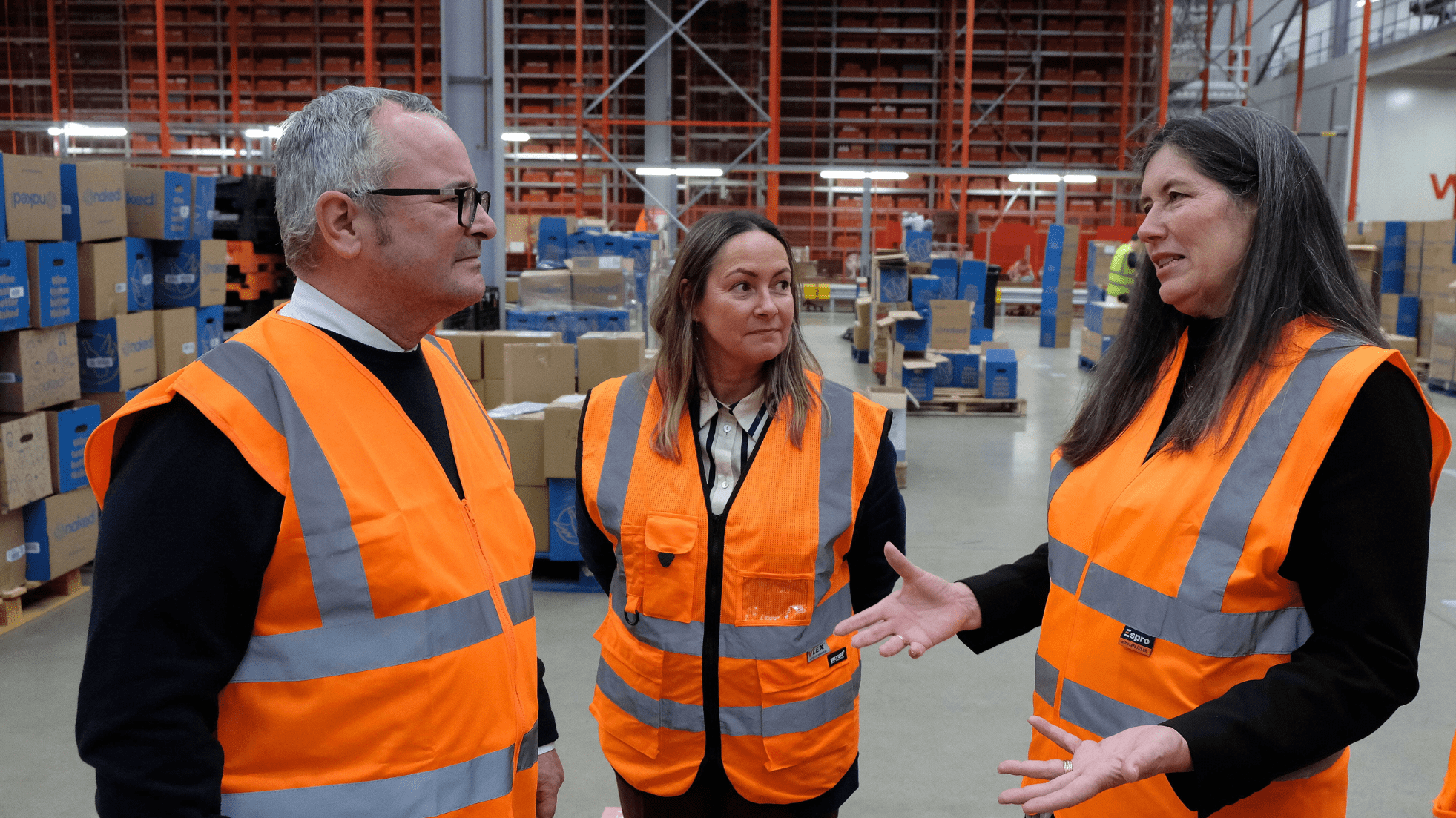With Labour’s election manifesto pledging to reform the Apprenticeship Levy into a Growth & Skills Levy, which would allow employers to spend their contributions on other training routes, many of those attending the annual Apprenticeship & Training Conference last month were eager to hear how these changes would be implemented.
Formerly the Annual Apprenticeship Conference, rebranded in 2025 as the Apprenticeship & Training Conference, the event serves as a vital gathering for professionals across the apprenticeship sector. Colleges, universities, training providers and employers come together for two days of plenary sessions, workshops and discussions on the future of skills and training.
This year, the conference moved to Liverpool’s M&S Arena, after two successful years in Birmingham, and featured a range of high-profile speakers, with particular anticipation surrounding government representatives given the recent change in administration.
On Day One, Kate Ridley-Pepper, Director of the Work-Based Skills Directorate at the Department for Education (DfE), addressed delegates. The headline guest for Day Two was Baroness Jacqui Smith, Minister for Skills, in a session that was expected to provide crucial updates on apprenticeship funding and policy.
Unfortunately, the Minister’s last-minute decision not to attend the event and her vague responses left many in the sector frustrated. Rather than attending in person, as previously advertised, Baroness Smith opted to deliver her speech via Zoom from Westminster, a decision that many interpreted as a lack of commitment to the sector.

Levy and funding uncertainty
Baroness Smith offered little clarity on the reform of the Apprenticeship Levy into a Growth and Skills Levy, stating that such reforms were ‘dependent on the money the DfE receives at the end of June’.
She further announced that funding had to be diverted and rebalanced towards young people, citing that apprenticeship starts for under-25s had declined by 40% since 2015. While investment in young talent is crucial, her comments raised concerns that existing apprenticeship routes, particularly Level 7 apprenticeships, would suffer as a result.
The Department for Education’s apprenticeships budget increased to £2.7bn in 2024-25, but the removal of Level 7 apprenticeships from the levy funding could free up about £240m.
Apprenticeships are a recognised educational pathway from the age of 16, from Level 2 through to Level 7, with over 600 approved Apprenticeships Standards. They incorporate a mandatory 20% off-the-job learning, meaning that there is a real focus on both the employer and the apprentice investing in real time to allow the apprentice to learn either at college, university or online, as well as through work-related learning activities such as shadowing, attending meetings and in-house training.
But the potential withdrawal of Level 7 apprenticeship funding has left providers and employers deeply concerned. Many businesses have already recruited apprentices for these positions, offering contracts about which there is now uncertainty. It has been widely speculated that funding for new Level 7 apprenticeships will be cut from July 31, 2025, with only those who had already started an apprenticeship being supported until its completion. This could result in businesses having to retract offers and leave prospective apprentices without employment or training opportunities.
While acknowledging the disruption, Baroness Smith defended the move by stating: “To govern is to choose. We have to prioritise. We’ll announce the final decision as soon as possible, but this is an example of the choices that need to be made when resources are limited.”
This statement did little to reassure delegates, particularly as Level 7 apprenticeships span key sectors such as law, medicine, science, IT and engineering. Employers also rely on these apprenticeships to upskill existing employees, making the potential funding cut even more damaging.

The apprenticeship brand under threat?
Adding to concerns, the government’s plans for foundation apprenticeships in sectors such as healthcare, smart meter installation, and production engineering were met with scepticism. Many in the industry fear that these new routes are a watered- down version of apprenticeships, diluting their core principles of sustained, high-quality training.
Meanwhile, the government has already removed the requirement for apprentices over the age of 19 to complete Maths and English qualifications if their employer consents, further fuelling concerns that standards are being eroded rather than strengthened.
A lacklustre vision for the future
Baroness Smith’s address attempted to outline Labour’s post-16 education strategy, framed around three priorities:
Access to funding for all
Progression available for everyone
Defined pathways with clear links to employment
However, these vague commitments did little to answer pressing questions about apprenticeship funding, employer flexibility and long-term sustainability.
For a Minister for Skills to choose a remote appearance over engaging directly with sector leaders only added to the frustration, with over 500 apprenticeship providers in the room with potential responsibility for around 250,000 apprentices in the UK. Instead of providing the clarity and vision that the sector desperately needs, Baroness Smith’s speech left many feeling she’d stayed away to avoid questions and hearing first hand the implications of the decisions being made.
To find out more about The Right Track Consultancy, call 07743 828719, email helen@therighttrackconsultancy.com or visit their website.
Director
The Right Track Consultancy



















